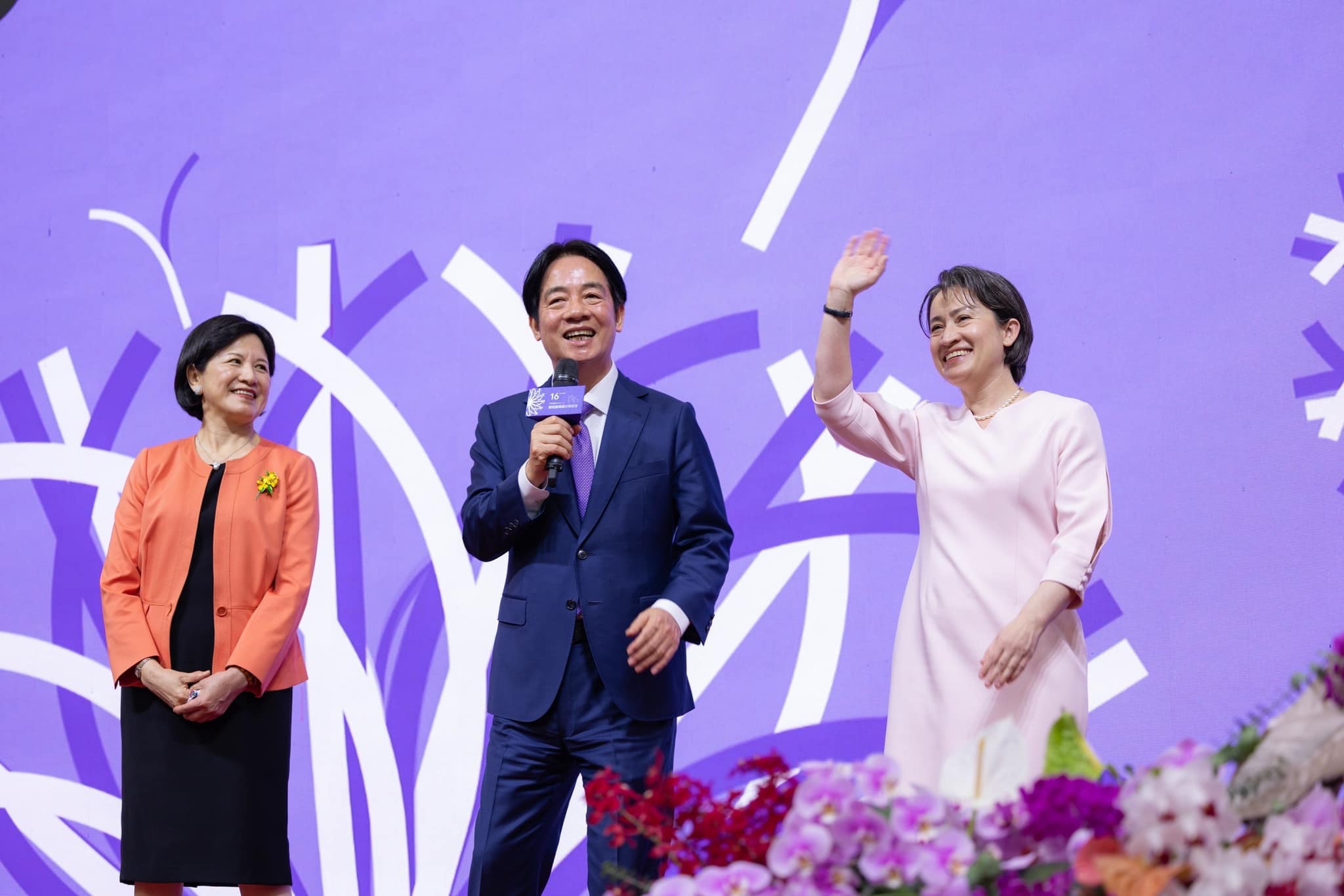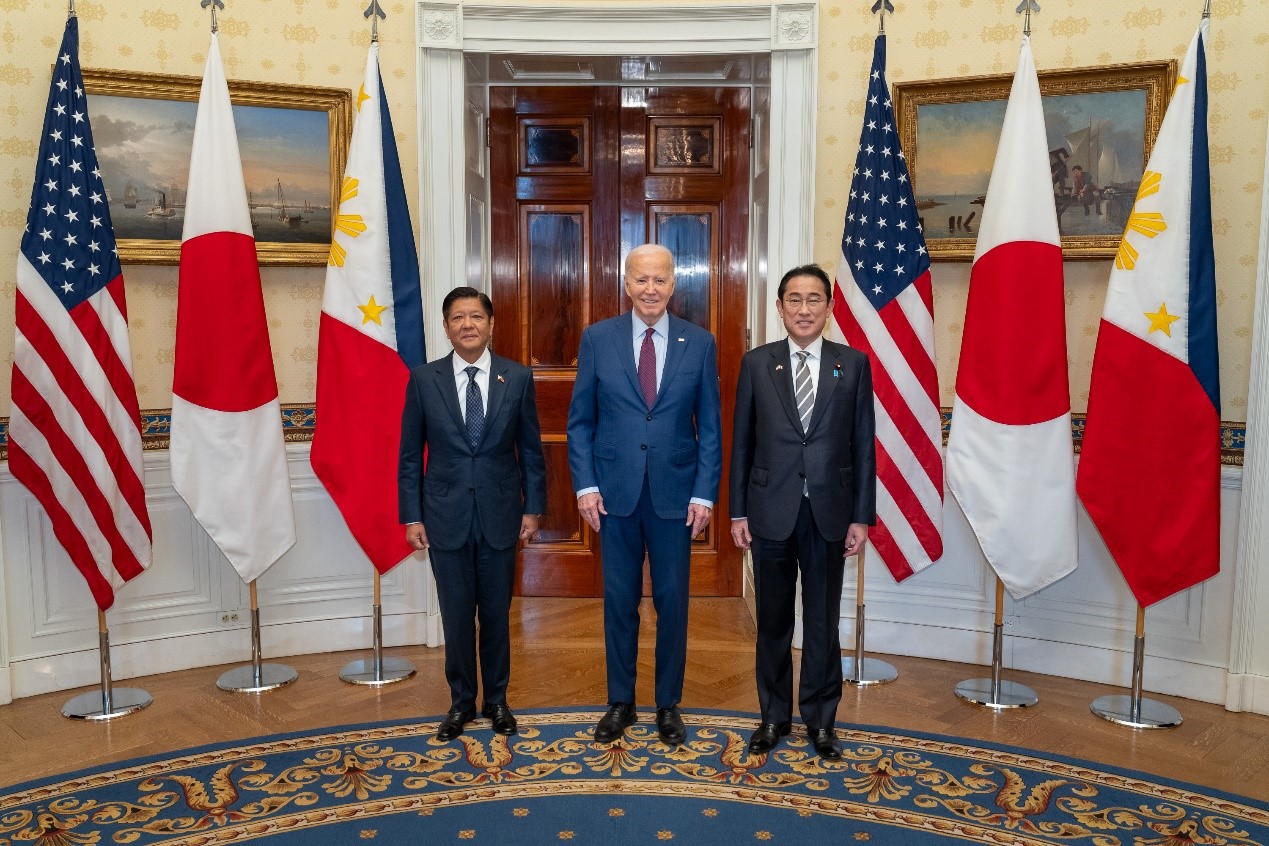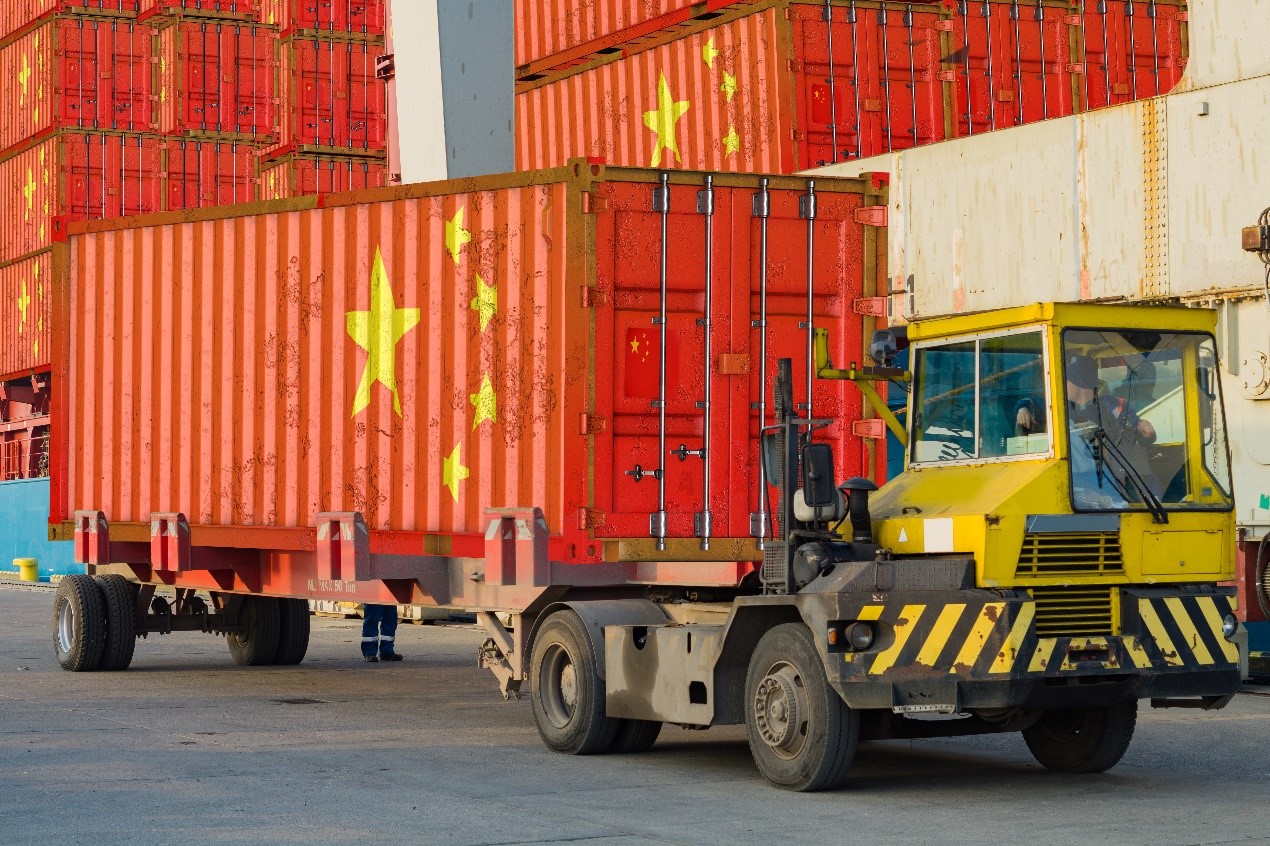Taiwan’s 2024 Presidential and Legislative Elections: Implications for the Region
Internationally, the results of the elections in Taiwan will spill over to the elections around the world later that year. If voters in South Korea and India are influenced by the election results in Taiwan, along with the unpredictable elections in Ukraine and Russia in March, the outcomes of these elections could in turn influence the 2024 U.S. presidential election. Picture source: 賴清德, December 5, 2023, Facebook, https://www.facebook.com/photo/?fbid=908273944001717&set=a.51953710287540.
Prospects & Perspectives No. 66
Taiwan’s 2024 Presidential and Legislative Elections:
Implications for the Region
By Austin Horng-En Wang
Based on available polls, Taiwanese people may choose to have a divided government in the upcoming 2024 elections. The candidate from the Democratic Progressive Party (DPP) and current vice president, Lai Ching-te, could extend the DPP presidency for four more years due to failed cooperation on the part of the opposition. However, the DPP could lose its majority in the Legislative Yuan. In the 2020 elections, the DPP won 64 of the 113 seats in the Legislative election – but the party won less than 5% of the vote share in 11 districts. Since the vote share in the presidential and legislative elections are highly correlated, if Lai receives 5% less in 2024 than Tsai Ing-wen did in 2020, the DPP could lose its majority in the Legislative Yuan. The shift in public opinion from 2020 may be explained by some DPP officials’ scandals, high housing prices, Chinese information operations, and the rise of populism. The influence of this election result, furthermore, goes way beyond the causes.
The pitfalls of a divided government
Domestically, the ongoing military reform and weapons acquisitions/development under the Tsai administration could be postponed or even suspended if an opposition party came to power or secured a majority of seat in the Legislative Yuan. When opposition parties control the Legislative Yuan, they have the ability to set the agenda and prioritize their preferred bills. Since the two major opposition parties, the Kuomintang (KMT) and Taiwan People’s Party (TPP), tend to downplay the importance of military readiness, any new proposal and increased military spending or reform could fail to secure enough support. Besides, KMT and TPP legislators may exert their power of investigation and review many policies from the Tsai era, which will crowd out the debate or attention on military spending and preparation.
Theoretically, Lai could negotiate with the leaders of the opposition parties and agree on some social welfare policies or infrastructure work in exchange for future proposals on military reform. However, Lai’s personality and his previous boycott against the Tainan City Council during his time as mayor of the southern city both suggest that he may not seek a compromise in such a divided government. Moreover, Lai may not tolerate cabinet or party members who are linked to scandals or come under investigation, and such intolerance could in turn give opposition parties a chance to further shape the political agenda and limit the ability of the ruling party and executive branch. As a result, we could see serious political gridlock in the first one or two years of a divided government. If the U.S. or any other country plan to help Taiwan bolster its military readiness, legislative turmoil and gridlock could become an impediment.
Global repercussions
Internationally, the results of the elections in Taiwan will spill over to the elections around the world later that year. South Korea will hold legislative elections in April, and India will have general elections in May. Both countries are important allies in the U.S.’ Indo-Pacific strategy. If Lai does not get more than half of the votes and DPP legislative candidates do not win over half of the seats, the result will be interpreted (and distorted) as a lack of trust among the Taiwanese people in Lai and the DPP government, as well as the DPP’s recently pro-U.S. approach. This interpretation could be compounded by the fact that Hsiao Bi-khim, the former Taiwanese representative to the U.S., recently joined Lai as the vice presidential candidate on the DPP ticket. If voters in South Korea and India are influenced by the election results in Taiwan, along with the unpredictable elections in Ukraine and Russia in March, the outcomes of these elections could in turn influence the 2024 U.S. presidential election — the shift in vote shares in these countries could be further interpreted as a referendum on the effectiveness of U.S. foreign policy in East and Southeast Asia. Numbers do not lie, but people do. We should prepare in advance for how the election results will be interpreted.
Furthermore, the election results could determine the effectiveness of China’s information operations. Recently, numerous reports in Taiwan have suggested a clear sign of China’s interference on platforms such as the Little Red Book, tax inspections against Terry Guo, deepfakes of Lai videos, Taiwanese soldiers charged with spying, Chinese military exercises and Hong Kong-based content firms and cyber armies. If successful, China could further apply these strategies and practices to the upcoming elections around the world. Therefore, China’s information operations will have an indirect spillover effect from the election results in Taiwan to the results in other countries.
The China angle
Looking ahead, the 2024 election results in Taiwan could further influence Chinese leader Xi Jinping’s agenda and decision-making. Since Xi will face another Party Congress and seek “reelection” in 2027, he must achieve certain things or at a minimum make some progress on some issues during his current — and third — term. Since Xi started his third term in 2022, China experienced a U-turn in its COVID-19 policy, a declining economy, rising debt, and the lowest birthrate in its modern history. The U.S.-China relationship has not recovered after the Biden-Xi meeting last month. Even though China has reopened its border and welcomes foreign investment anew, its damaged reputation and the political risks have made investors and hesitant to invest capital in the country. To resolve the economic turmoil and the high unemployment rate among the younger generation, China has not mothballed the Economic Cooperation Framework Agreement (ECFA) with Taiwan, and pro-China parties and propaganda have loudly promoted a deepening of economic tie with China.
If the DPP and Lai win the presidency in 2024, the direction of Taiwan’s current foreign and technology policies will not change (but the progress would be slowed by a divided government). As a result, Taiwan may not be able or willing to help China’s economy as much as Xi would want it. Therefore, China may turn to nationalism and become aggressive toward its neighbors. For example, we can expect more incidents in the South China Sea or boycotts against Japan, Taiwan, and South Korea by the Chinese people and businesses. In such a scenario, the U.S. and its Asian allies must seriously discuss the likelihood of the next “Crimea moment” in East or Southeast Asia before 2027.
(Dr. Wang is Assistant Professor, Department of Political Science, University of Nevada, Las Vegas.)














